14+ Wild Mustard Plant
Mustard Sinapis arvensis is in the same family as cabbage broccoli turnips and others. It is a member of.
Brassica Rapa Field Mustard Minnesota Wildflowers
Grinding and mixing the seeds with water vinegar or other liquids creates the yellow condiment known as prepared mustard.
. Mustard should be grown in full sun. 1-2 feet high branched and erect. Brassicaceae species are characterized by four-petalled cross-shaped flowers that feature two long and two short stamens and produce podlike fruits known as siliquesThe following is a list of.
Web Wild Mustard. It belongs to the family of Cruciferae such as broccoli kale cauliflower cabbage and Brussels sprouts. Fruit are 1- to 2-inch-long cylinder-shaped capsules with a four-angled beak at the tip that contain round black to purple seeds.
Wild mustard Sinapsis arvensis is an annual plant. Web Brassicaceae ˌ b r æ s ɪ ˈ k eɪ s iː ˌ iː-s i ˌ aɪ or the older Cruciferae k r uː ˈ s ɪ f ər i is a medium-sized and economically important family of flowering plants commonly known as the mustards the crucifers or the cabbage familyMost are herbaceous plants while some are shrubsThe leaves are simple although are sometimes deeply incised lack. Its usually surrounded by oak trees.
For help identifying weedy mustards either in the rosette or flowering phase please visit our mustard identification page. The mustard plant produces deep purple-red leaves with green petiole. Leaves and stems have a sparse covering of sticky glandular hairs.
Emerges from soil depths of 1-inch or less. Flowering peaks in June and July but can continue until the first frost. Most often a winter annual but sometimes a summer annual with characteristic yellow mustard flowers.
Key Characteristics broccoli-like flower buds yellow brassica flowers 4 petals 6 stamens in springtime. About Wild Mustard Plants. Web What is Wild Mustard.
The hike covers about three miles. Web This video shows how to identify and pick Wild Field Mustard thats growing as a weed in your garden or out in the wild. The cotyledons are hairless and have 04 1 cm long stalks.
Scientists with the Agricultural Research Service ARS have shown that seed meal from plants in the mustard family can kill mosquito larvae which start their. Pinnatifida wild mustard Family. Mustard is a type of condiment used in many dishes around the world.
This weed can be found throughout the United States primarily in nurseries and winter small grains. Web Bright yellow flowers with four petals are found in terminal clusters. Several mustards species are fallspring weeds in New York.
Wild mustard is one of 3000 species in the mustard family. Web Chorispora Tenella Purple Mustard. All wild mustards are edible but some are tastier than others.
Web Brassica arvensis and Sinapis arvensis the charlock mustard field mustard wild mustard or just charlock is an annual or winter annual plant in the family Brassicaceae. Emerges in late summer early fall or spring. It grows best in well-drained moist soil but may also grow in droughty conditions moderate heat and soils with low fertility Clark 2007.
Mustard is essential in many recipes including sauces marinades and dressings. Characteristic four-petaled yellow flowers of wild mustard. Monday amid cottonwoods willows and eucalyptus trees to look for spring wildflowers.
Plants can reach 16 cm 63 in in length. Web Mustards Brassica spp are herbaceous annual plants in the family Brassicaceae grown for their seeds which are used as a spice. It also shows how to process the wi.
Wasteland roadsides grain and other fields crops primarily in northern Ohio. It is found in the fields of North Africa Asia Europe and some other areas where it has been transported and naturalized. Mustard plants are thin herbaceous herbs with yellow flowers.
The leaves of the plant are toothed lobed and occasionally have the larger terminal lobes. Emergence is impaired in soils that dry and become crusted. Approximately 1200 seeds per plant.
Web A truly fascinating plant with a myriad of uses read on to find out how to use wild mustard as an herb in the landscape. Web Wild mustard plants have a high sulfur content and may respond to S. The species is classed as a noxious weed in many areas.
Growth is reduced substantially at a pH of 4748 compared to a pH of 5765. The leaf mustard is known as bamboo mustard small gai choy 小芥菜 and mustard cabbage. Wild mustard grows on a variety of soil types but grows best and is most competitive on clay soils.
In Michigan several populations of wild mustard act as a summer annual. Highly branched summer annual herb. Web Species Of Mustard Plant Field Mustard.
Wildflower Mustard Sinapissylvestris is a perennial herbaceous plant that grows in moist areas. White stalks often topped by a light. Field Mustard Sinapis alba is a biennial plant that produces large yellow flowers.
Web How to Plant Grow and Harvest Mustard Greens. Its made from ground mustard seeds and can range in flavor from sweet to spicy. The giant-leafed mustard also known as Japanese mustard takana タカナ 高菜 has purple-red savoy leaves with strong sharp peppery taste.
Web Take a free guided hike from 8 to 930 am. Web Ohios Noxious Weeds Wild mustard Brassica kaber var. Web Photo by Scott Morris of Cornell University.
Web The mustard plant is any one of several plant species in the genera Brassica and Sinapis in the family Brassicaceae the mustard family. Partial shade is only acceptable when you grow mustard for baby greens which should be protected from the strong sun as the weather turns hot. Chorispora tenella originates in Europe and Asia but has long been introduced in the US where it can be very abundant carpeting whole fields.
Mustard seed is used as a spice. Web Commonly known as the mustard family Brassicaceae contains some 338 genera and more than 3700 species of flowering plants distributed throughout the world. All parts are edible.
While mustard grows in most soils a fertile moist well-draining slightly acidic soil with a pH below 60 is best. Highly opportunistic herbaceous weed that thrives where human activity disturbs the soil. Web Field mustard is an extremely adaptable plant that grows in sandy to heavy clay soils and tolerates a pH range from 48 to 85 Hannaway and Larson 2004.
Seedlings have cotyledons that are kidney- or heart-shaped to round 025-05 06-13 cm long by 025-075 06-2 cm wide. Alternate 2-7 inches long. Annual annual or summer annual.
Advance registration required.

Wild Mustard Flowering Time Description Seasonal Development And General Distribution In Vermont
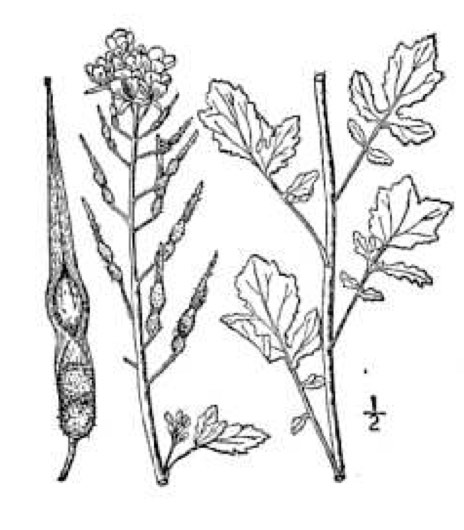
Wild Mustard Identifying Noxious Weeds Of Ohio
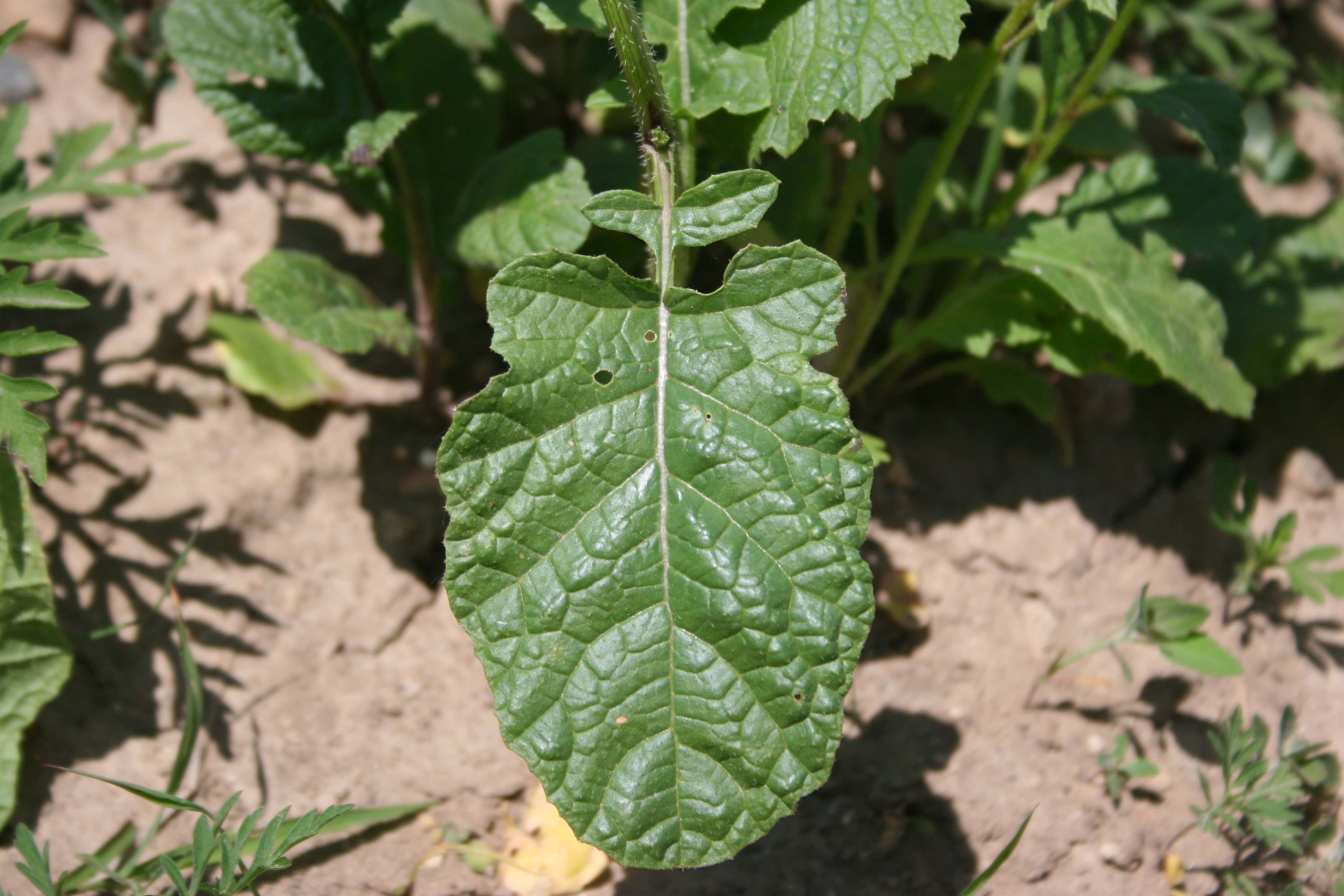
Wild Mustard Sinapis Arvensis Plant Pest Diagnostics

Origin Of Cole Crops From Wild Mustard Source Download Scientific Diagram
/Mustard(YES_Black)_2016_06_08_Hightown_coast_dunes_Waterloo_1029p77.jpg)
Mustard Black Black Mustard Wild Flower Finder
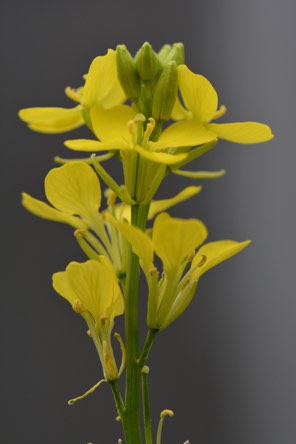
Wild Mustard Identifying Noxious Weeds Of Ohio
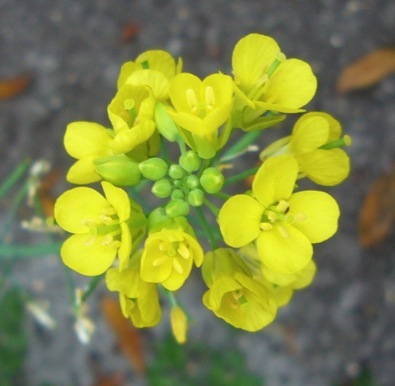
Mustard Wild Tender And Tough Eat The Weeds And Other Things Too
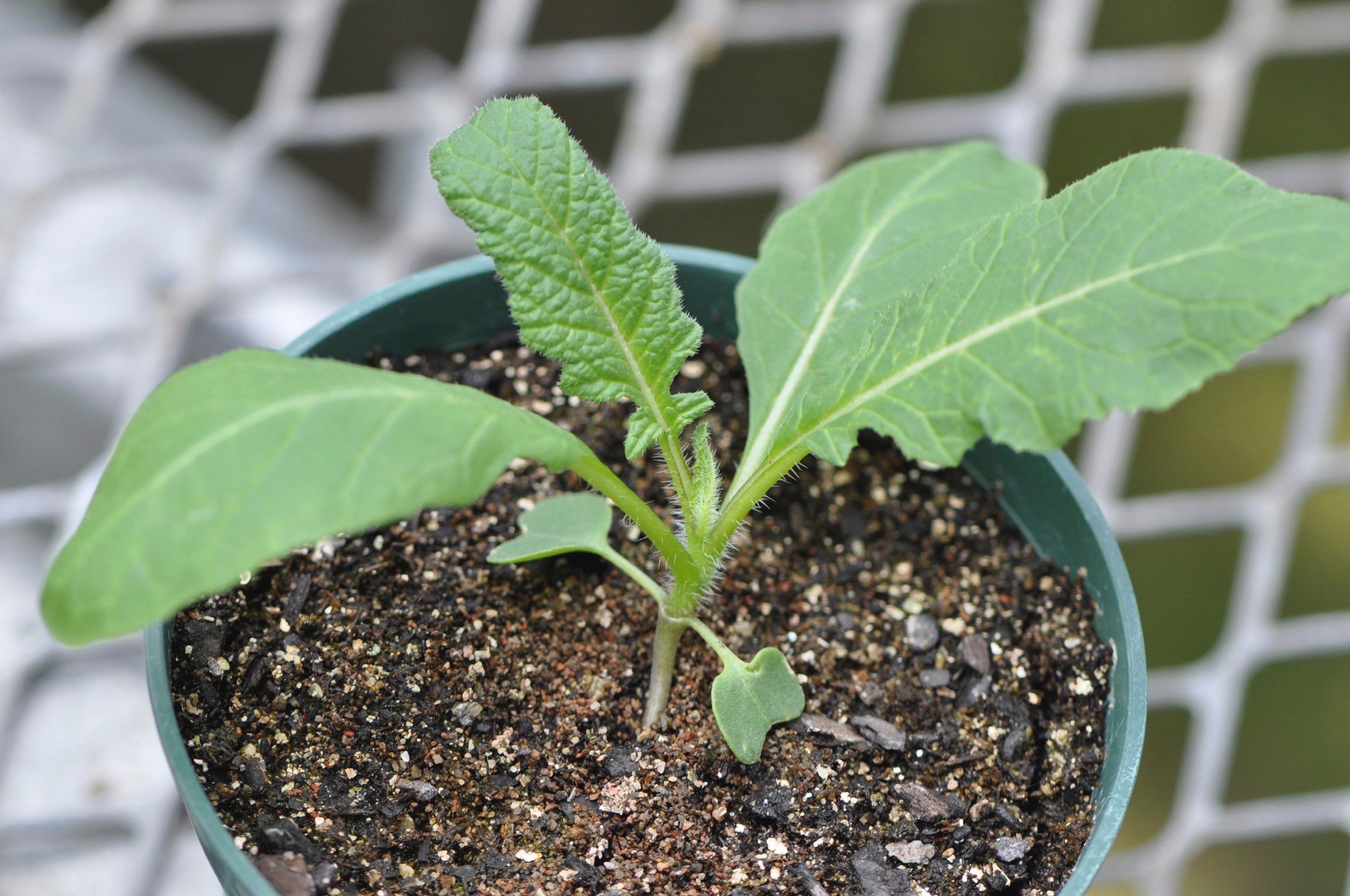
Wild Mustard Identifying Noxious Weeds Of Ohio

Gardening There S A Wild Story Behind Wild Mustard Daily News

Wild Mustard Charlock Field Mustard Sinapis Arvensis
One Mustard Many Flavors In Defense Of Plants
Wild Mustard Brassica And Sinapis Species Identification Guide
/Mustard(Hoary)_2019_06_26_GreatOrme_withWendyMcCarthy_063p23.jpg)
Mustard Hoary Hoary Mustard Wild Flower Finder
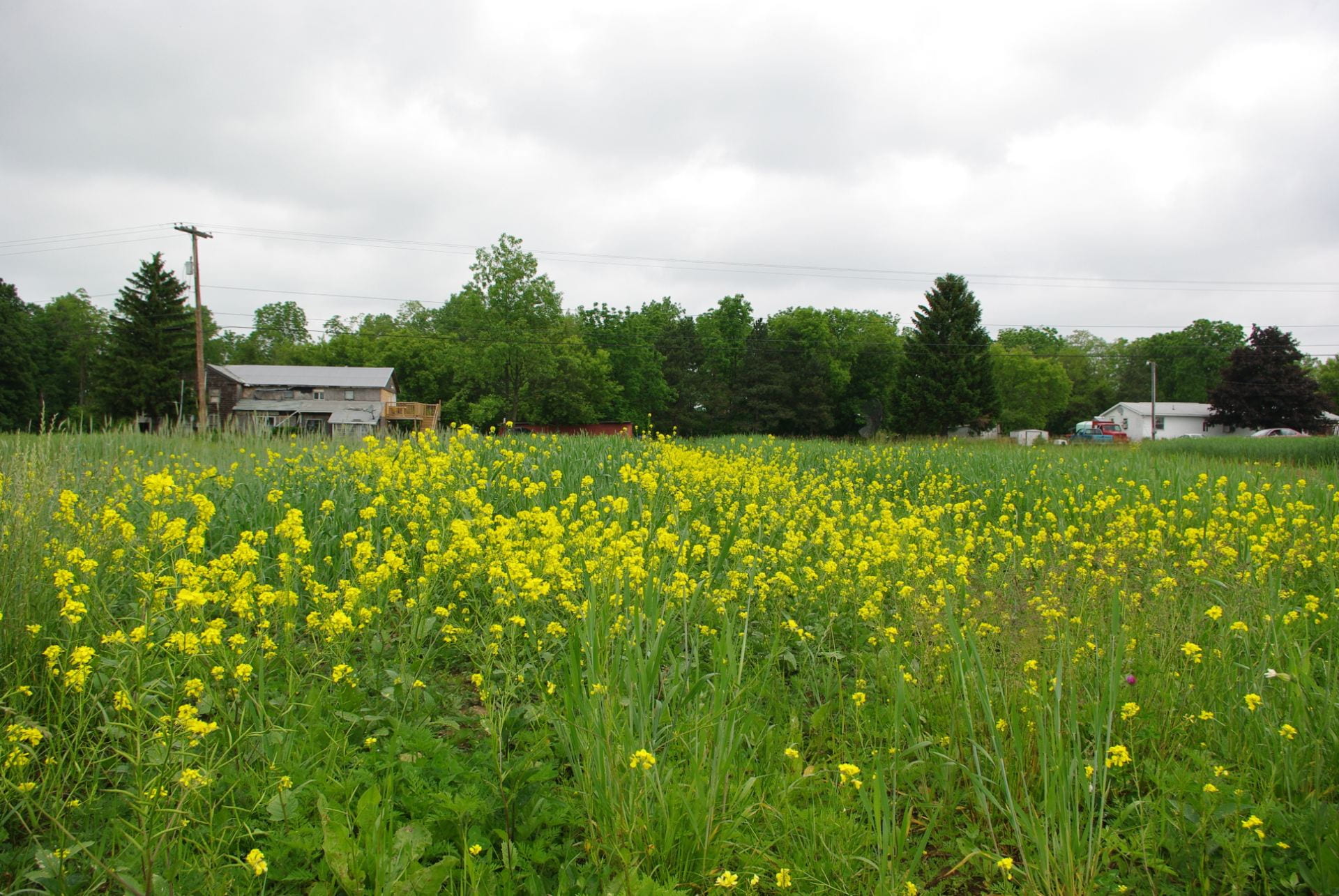
Wild Mustard Cornell Weed Identification

Wild Mustard Charlock Field Mustard Sinapis Arvensis
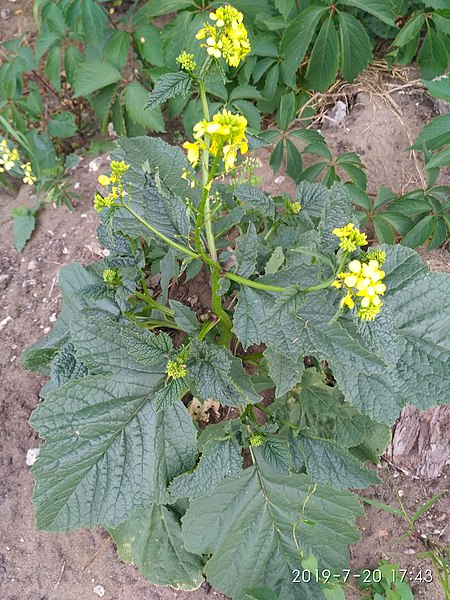
Wild Mustard Brassica And Sinapis Species Identification Guide
Wild Mustard Brassica And Sinapis Species Identification Guide